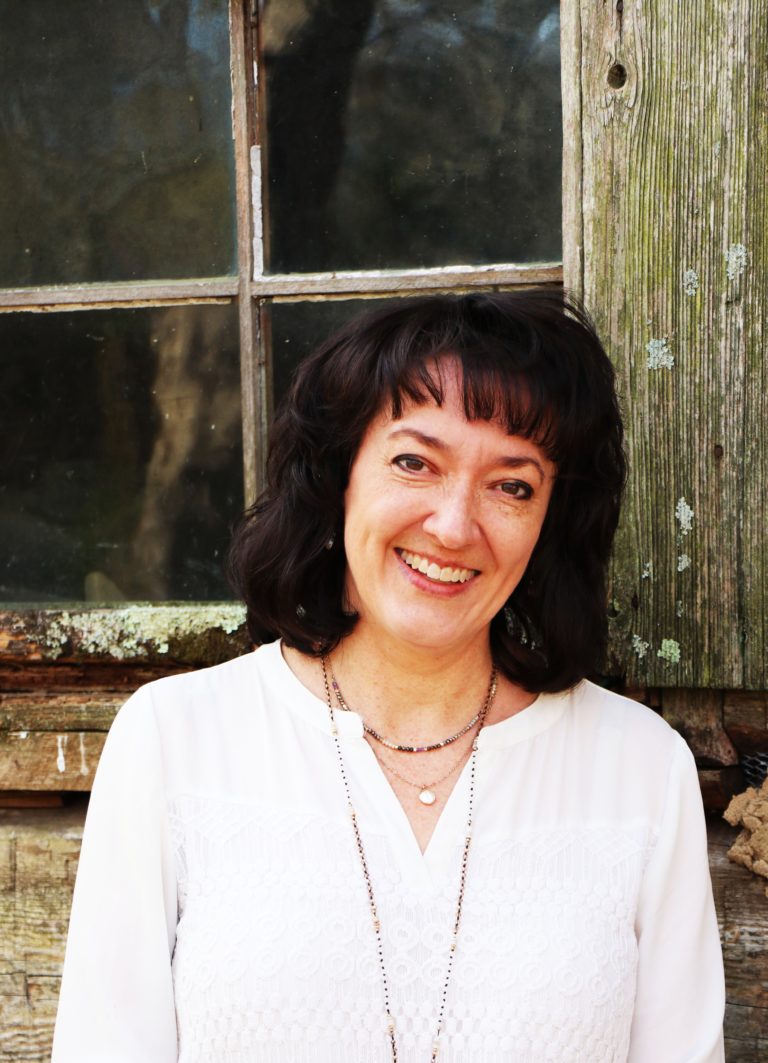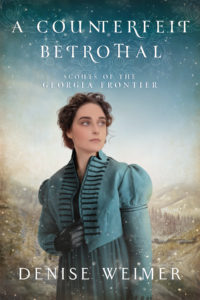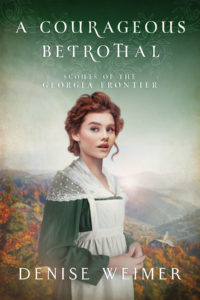
Denise Weimer: Historical Romance at the Tip of a Pen
I recently had the opportunity to interview my editor at Wild Heart Books. In addition to being an awesome editor (who cheers me on), she is an awesome writer. Her newest book, A Counterfeit Betrothal, is set in 1813 Georgia. Denise has been in love with history since childhood:
How long have you been writing?
I started writing around age eleven, when my parents would take me to historical sites and my active imagination started churning out stories about the type of people who lived in those old houses or adorable towns. My first novella was published in my late twenties. I concentrated on being a mom, magazine writing, and other part-time jobs until my next series, The Georgia Gold Series, found a publisher. A number of novels and novellas, both historical and contemporary romance, have followed in the last decade.
What led you to becoming an editor?
About five or six years ago, I started noticing some of my author friends being published by and working as editors for Lighthouse Publishing of the Carolinas. I reached out to the company, and they plugged me in under Ann Tatlock, Heritage Beacon Historical Fiction. About the same time, I was in a multi-author Barbour collection with Pegg Thomas, who was the Smitten Historical Romance editor. Smitten was growing, and she asked me to help her out with the imprint. She connected me with Karin Beery’s PEN Institute for some extra training. Before I knew it, both Ann and Pegg had retired from LPC, and I was overseeing both historical imprints! I did so for several years while building my independent editing clients and working through Christian Editor Connection as well. I’m now with Wild Heart Books, Misty Beller’s Christian historical romance company, as Acquisitions & Editorial Liaison.
What are your favorite aspects about being an editor?
Finding authors like you with stories that blow my socks off. LOL! Seeing them sign a series contract, working with them behind the scenes, the delight of the book cover reveal, and the launch!
Secondarily, in the actual editing process, I love knowing in my spirit that I’m doing with clarity and confidence exactly what God gifted me to do.
How does your writing influence your editing and vice-versa?
Goodness, being an editor has made my writing so much stronger. I’m able to see things in my stories I wouldn’t have before and catch bloopers or holes much sooner. I kind of edit myself as I go. It’s like both sides of my brain are working equally and simultaneously. That allows me to be both organized and creative. It’s taught me to hone words, to realize that each one should have purpose and power.
How does my writing impact my editing? I hope it makes me a better editor because I have an intrinsic feel for what the author was going for even when something is unclear in their writing. It definitely gives me empathy and compassion. I know how I’d want my editing comments and feedback delivered, and I seek to take out personal feelings and deliver suggestions with kindness and an eye on the bigger picture.
What do you wish writers understood about the editing process?
A good editor won’t try to change your style or make unnecessary cuts. Their comments should focus on the text, not you as a person. They should be following industry rules and expectations and flagging anything that could be confusing, incomplete, or offensive to readers. They’ll encourage you to clearly communicate your main characters’ goals and motivations and make sure each scene moves the plot forward. Their goal is to make your book the most polished and engaging it can be before your readers get a copy.
If edits make you nervous, I’d encourage you to pray and relax before opening your document. Then try to imagine the editor not as a harsh taskmaster but as a friendly eye in the sky, helping your manuscript avoid any pitfalls.
What are some of the differences between your role as an editor and your role as a writer?
Well, as an editor, I get to hide behind my desk where I’m comfortable. Being an author means I can’t just write my books, I have to also sell them. Which requires things that are uncomfortable, such as teaching, podcasts, and video interviews. I also do in-person events, especially when a book is launching. I love getting out in the public and talking to people, and I try to take my books to historical events and festivals I’d attend even if I weren’t selling books. The social part is good for me, but as primarily an introvert, it can be a bit draining. It always makes you a bit vulnerable to put yourself out there—in person, online, or on the page.
How did you develop your idea for your new release/series?
I had a book I pitched to Misty at Wild Heart Books (now A Counterfeit Betrothal, https://www.amazon.com/Counterfeit-Betrothal-Denise-Weimer/dp/1942265816/ ) and she asked how I might turn it into a series, since that’s what she prefers to contract. I love writing in Colonial and Federal times with settings on the Southern frontier, so I did a little research and came up with the idea of the Scouts of the Georgia Frontier. The first novel is set during the War of 1812. The next two take place during the American Revolution. The fourth is set in Savannah during the Stamp Act Protests of 1765. So we’re actually moving back in time. But each novel is packed with frontier action, adventure, and romance.
Any favorite topics, eras, or tropes you keep returning to?
A lot of my characters are in need of healing or redemption. I love to show how God can bring that about even among the harshest or most challenging circumstances—using the hardships to refine.
Learn more at https://www.deniseweimerbooks.com
I recently had the opportunity to interview my editor at Wild Heart Books. In addition to being an awesome editor (who cheers me on), she’s an awesome writer:
How long have you been writing?
I started writing around age eleven, when my parents would take me to historical sites and my active imagination started churning out stories about the type of people who lived in those old houses or adorable towns. My first novella was published in my late twenties. I concentrated on being a mom, magazine writing, and other part-time jobs until my next series, The Georgia Gold Series, found a publisher. A number of novels and novellas, both historical and contemporary romance, have followed in the last decade.
What led you to becoming an editor?
About five or six years ago, I started noticing some of my author friends being published by and working as editors for Lighthouse Publishing of the Carolinas. I reached out to the company, and they plugged me in under Ann Tatlock, Heritage Beacon Historical Fiction. About the same time, I was in a multi-author Barbour collection with Pegg Thomas, who was the Smitten Historical Romance editor. Smitten was growing, and she asked me to help her out with the imprint. She connected me with Karin Beery’s PEN Institute for some extra training. Before I knew it, both Ann and Pegg had retired from LPC, and I was overseeing both historical imprints! I did so for several years while building my independent editing clients and working through Christian Editor Connection as well. I’m now with Wild Heart Books, Misty Beller’s Christian historical romance company, as Acquisitions & Editorial Liaison.
What are your favorite aspects about being an editor?
Finding authors like you with stories that blow my socks off. LOL! Seeing them sign a series contract, working with them behind the scenes, the delight of the book cover reveal, and the launch!
Secondarily, in the actual editing process, I love knowing in my spirit that I’m doing with clarity and confidence exactly what God gifted me to do.
How does your writing influence your editing and vice-versa?
Goodness, being an editor has made my writing so much stronger. I’m able to see things in my stories I wouldn’t have before and catch bloopers or holes much sooner. I kind of edit myself as I go. It’s like both sides of my brain are working equally and simultaneously. That allows me to be both organized and creative. It’s taught me to hone words, to realize that each one should have purpose and power.
How does my writing impact my editing? I hope it makes me a better editor because I have an intrinsic feel for what the author was going for even when something is unclear in their writing. It definitely gives me empathy and compassion. I know how I’d want my editing comments and feedback delivered, and I seek to take out personal feelings and deliver suggestions with kindness and an eye on the bigger picture.
What do you wish writers understood about the editing process?
A good editor won’t try to change your style or make unnecessary cuts. Their comments should focus on the text, not you as a person. They should be following industry rules and expectations and flagging anything that could be confusing, incomplete, or offensive to readers. They’ll encourage you to clearly communicate your main characters’ goals and motivations and make sure each scene moves the plot forward. Their goal is to make your book the most polished and engaging it can be before your readers get a copy.
If edits make you nervous, I’d encourage you to pray and relax before opening your document. Then try to imagine the editor not as a harsh taskmaster but as a friendly eye in the sky, helping your manuscript avoid any pitfalls.
What are some of the differences between your role as an editor and your role as a writer?
Well, as an editor, I get to hide behind my desk where I’m comfortable. Being an author means I can’t just write my books, I have to also sell them. Which requires things that are uncomfortable, such as teaching, podcasts, and video interviews. I also do in-person events, especially when a book is launching. I love getting out in the public and talking to people, and I try to take my books to historical events and festivals I’d attend even if I weren’t selling books. The social part is good for me, but as primarily an introvert, it can be a bit draining. It always makes you a bit vulnerable to put yourself out there—in person, online, or on the page.
How did you develop your idea for your new release/series?
I had a book I pitched to Misty at Wild Heart Books (now A Counterfeit Betrothal, https://www.amazon.com/Counterfeit-Betrothal-Denise-Weimer/dp/1942265816/ ) and she asked how I might turn it into a series, since that’s what she prefers to contract. I love writing in Colonial and Federal times with settings on the Southern frontier, so I did a little research and came up with the idea of the Scouts of the Georgia Frontier. The first novel is set during the War of 1812. The next two take place during the American Revolution. The fourth is set in Savannah during the Stamp Act Protests of 1765. So we’re actually moving back in time. But each novel is packed with frontier action, adventure, and romance.
Any favorite topics, eras, or tropes you keep returning to?
A lot of my characters are in need of healing or redemption. I love to show how God can bring that about even among the harshest or most challenging circumstances—using the hardships to refine.
Learn more at https://www.deniseweimerbooks.com



4 thoughts on “Meet a Historical Romance Editor”
Thank you so much, Sherri! It’s such a pleasure to work with you. BTW, the pre-order link for the book 2 novella just went live: https://www.amazon.com/Courageous-Betrothal-Scouts-Georgia-Frontier-ebook/dp/B0CHMXGLJG/
I can’t wait to read it:)
Thanks for this great interview, Sherri. Denise, thanks for sharing with us about your writing and editing life. Your books sound wonderful. I will have to check them out!
Thank you so much, Patti! I’d love to connect on social media if we haven’t already.
Comments are closed.